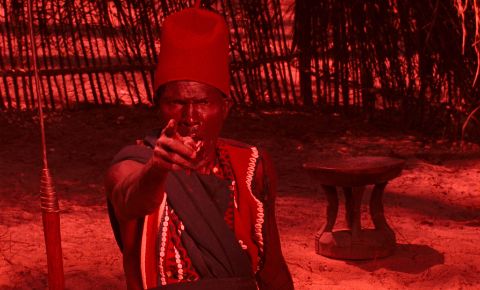Emitaï (God of Thunder)
D: Ousmane Sembène, 1971, Senegal, 103‘, Wolof, Diola, French with English subtitles, with live translation into German
Film
With an introduction by Aboubakar Sanogo
Wed., 27.11.2024
19:30
Miriam Makeba Auditorium
Free entry

Ousmane Sembène, Emitaï (1971). Courtesy Janus Films
During World War II, the Vichy regime recruits men from the French colonies. Under relentless pressure from the colonial leadership, the resistance in a Diola village in Senegal develops into an uprising and ends in tragedy. Ousmane Sembène's cinematic narrative follows the gradual escalation of the conflict. The movie does not draw its dramatic strength from the fates of the individuals but from the fatal clash between the well-established order of life of the local population and the ignorance, disrespect, and aggression of the white colonialists. As the village elder does not base his hope on Emitaï, the god of change, but on the uprising, Sembène bases his faith on the young generation.